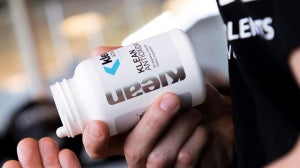

As an athlete, you’re regularly looking at and evaluating your physical health to make sure you’re performing at your peak, but how often are you checking in with your mental health?
Your mind matters, now more than ever and as an athlete, your mental resilience is regularly tested. Exercise is an integral part of your regime as an athlete, and you’re regularly striving for the best.
Whether you’re training for game day, running a marathon, or pushing for heavier weights in the gym, this can put both your physical and mental health under pressure, so it’s important that you find ways to take care of your mind.
Here are some ways that you can support your mental health, to help you to perform at your peak both physically and mentally:
Set Realistic and Achievable Goals
It can be disheartening when you don’t quite hit a certain fitness milestone that you had been striving for. When you’re pushing to be the best athlete in your field, everything takes time, and setting more realistic goals can make it feel like even more of a huge boost when you hit them.
Why not try breaking your goals into smaller, more achievable steps? It can help give you focus, and each time you tick one off, a sense of reward and achievement.
Make Time for Sleep
Sleep can be incredibly underestimated when it comes to supporting your mental wellbeing. Sleep is essential to good health; getting a good night’s rest allows both your body and mind to shut off, and can help aid in the recovery from demanding training schedules.
Lack of sleep can lead you to feel irritable, drained and even impair your judgment and affect your ability to focus. Ideally, you need to be aiming for 7-9 hours of sleep a night.
Try to create a routine that works for you that you can stick to and avoid caffeine and scrolling through your phone late at night, as these can both keep your brain active and make it harder to wind down.

Nourish Yourself
You already know the importance of fueling your body as an athlete, but a balanced, nutritional diet is just as important for your mental health. If your body isn’t receiving the right nutrients, it can have a negative impact on your mood.
And as you’re pushing your body extra hard, it’s even more important to make sure you’re nourishing your body with a variety of healthy and nutritious foods.
To help support your mind, focus on a balanced diet that includes plenty of fruits and vegetables. Some foods that are good for the brain and mood include:
Bananas – bananas are a great source of natural sugar, vitamin B6, and prebiotic fiber, which work together to keep your blood sugar levels and mood stable.
Dark chocolate – chocolate is rich in compounds that may increase feel-good chemicals in your brain.
Nuts and seeds – certain nuts and seeds are high in zinc, selenium, and tryptophan, which may support brain function and lower your risk of low moods.
Oats – oats are high in iron and provide fiber that can help stabilise blood sugar levels and boost your mood.
Oily fish – oily, fatty fish like salmon, mackerel, and tuna are rich in omega-3 fatty acids. Omega-3 can support a multitude of health benefits, including helping you to look after your vision and heart health and supporting normal brain function.
It’s not always easy to consume a lot of oily fish to get your omega-3 intake, and your body can’t produce it naturally which is why some may turn to supplements. With the inclusion of purified fish oil, Klean Omega may help to provide joint, muscle, cardiovascular and neurological support.‡
Build Mental Resilience
By competing athletically, you’ll already understand the need for mental resilience and probably already have a lot of it. It takes huge amounts of mental resilience to train at high athletic levels, to running that extra mile, to lift the extra pounds, and even to just hit the gym some days.
You're already investing a lot of your time into training, gym sessions, and match days, which can leave little time for focusing on your mind. It’s important to make time for you alongside all of this and allow sufficient time for rest and recovery – not just for your physical health, but your mental wellbeing too.
Set aside sometime in your week to relax, reflect and give your mind a rest. It’s not a one-size-fits-all situation and you may need to find what works for you specifically and helps you to wind down.
Taking care of your mental wellbeing will help you to cope with the pressures of competing as an athlete, as well as the general stresses of everyday life.
Learn more about how to build mental resilience as an athlete:

How to Build Mental Resilience for Success
Discover tips on positive thinking and building mental resilience as an athlete.
‡These statements have not been evaluated by the Food and Drug Administration. These products are not intended to diagnose, treat, cure, or prevent any disease.








